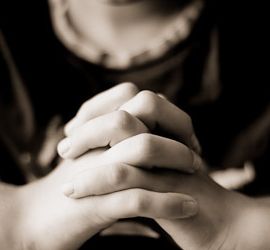we read, “Jesus went through all the towns and villages, teaching in their synagogues, proclaiming the good news of the kingdom and healing every disease and sickness. When he saw the crowds, he had compassion on them, because they were harassed and helpless, like sheep without a shepherd. Then he said to his disciples, “The harvest is plentiful but the workers are few. Ask the Lord of the harvest, therefore, to send out workers into his harvest field.”
Notice that Jesus was walking with the people. He saw the need “up close and personal.” He experienced humanity. And after walking with all of the despair, he was convinced that people needed help and hope.
So he laid down a command.
Notice that it wasn’t a recommendation. He didn’t offer a suggestion. As the master of the universe, the creator of all life, he gave a mandate: “Ask the Lord of the harvest.”
It was as if “The Lord of the Harvest” (God) was ultimately sovereign over raising up change agents.
The thought occurred to us: “Whoa. What if the world’s least reached peoples (those with the least chance of hearing about Christ) had to wait on the prayers that we prayed to call forth harvesters.?” And suddenly we had to ask ourselves another question: “Are we really praying this prayer?”
So we’re taking this question to focus groups. From one town to another, large cities, rural farming areas. State to state. And the answer is coming back again and again: we haven’t really been taking this question seriously like we could. Like we should — if people’s eternities depended on it.
How about you? Have you been hearing this prayer in your church? Do you hear it from the pulpits of our land? Have you been praying it daily in public and in private?
The first lesson we’re learning in Five Loaves is to start with Matthew 9. Ask the Lord of the harvest.
How can we get started carrying out this prayer?
